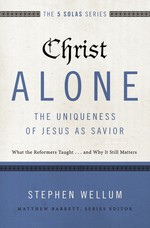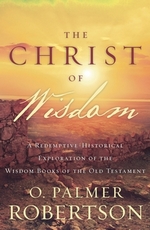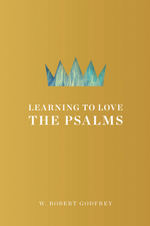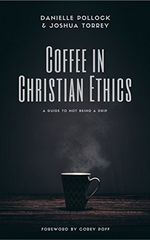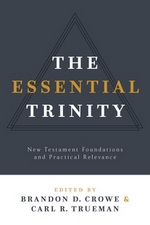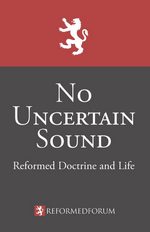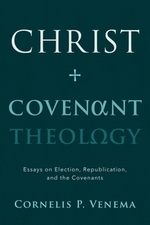 Christ and Covenant Theology: Essays on Election, Republication, and the Covenants
Christ and Covenant Theology: Essays on Election, Republication, and the Covenants
by Cornelis P. Venema
eARC, 504 pg.
P&R Publishing, 2017
Read: July 23 – August 20, 2017

The doctrine of covenants is in many ways the heart of Reformed Theology, defining Reformed Christianity and marking the dividing line between it other forms of Protestantism. Which is not to say that after 400 years and change that we’ve managed to work out all the details. Even now controversies (of varying degrees of heat) over aspects of Covenant Theology keep blogs, twitter and theologians busy. This particular tome is a collection of essays by noted theologian and author, Cornelis P. Venema, on some of these issues. They’re all slightly re-worked articles originally published in various journals, books, etc. but in one handy collection for those who haven’t tracked them all down before.
Broken into three sections, the book covers the relationship between the Covenant of Works and the Covenant of Grace; the relation between Covenant and Election (particularly as applied to children of believers); and then “Covenant Theology in Recent Discussion,” which focuses on the Federal Vision and N. T. Wright’s view of justification.
In a nutshell — I found Part 1 to be the most intriguing, Part 2 to be the most helpful, and Part 3 didn’t do much at all for me. But that’s me, and I can’t imagine that my experience will be replicated. I’m not going to spend a lot of time summarizing his arguments — I couldn’t do a good job of that; it’s beyond the scope of this blog; and it’d take far too much time to read — he does a better job of it anyway (or just read Ferguson’s foreward, which gives an excellent overview).
Part 1, “The Covenant of Works and The Covenant of Grace” focuses on the a couple of problems surrounding the concept of the “Covenant of Works” — in chapter 1, he explores some criticisms of the concept, the history of its development and then defends it (at least in is Westminster Confessional form). Venema then moves on to look at the ways in which some contemporary Reformed theologians are seeing to find a “republication” of the Covenant of Works in the Mosaic covenant. He begins with building the case for Republication, drawn from some of the primary sources, and then critiques it. I won’t say I’ve read everything on this topic in print, but I’ve read enough to get the issues, and this is probably the fairest job I’ve seen describing the position. It’s also a pretty good critique, showing many of the problems inherent to it. This was very helpful to me, and I expect, for many.
Part 2 is wider in focus — he devotes two chapters to looking at Herman Bavinck’s understanding of Covenant, Election and the relationship between the two. Bavinck is becoming one of my favorite theologians and this study, pulling from many of his works, was useful focusing on these themes. Venema then spends two chapters on the teaching of the Canons of Dort about children of believers who die in infancy — there’s an overall pastoral tone to these chapters (and the Canons), with some good historical overviews of what lead to it and how the Canons have been used since their writing while dealing with grieving parents and others. These two chapters probably helped me more than any others in this book. Finally, leading from both of those, Venema applies the doctrine of the Covenant to the baptism of children. I read this in the original book it was published in, and it was one of the better chapters in that book — it’s still good now.
The third part dragged for me, I’ll admit. Venema does his characteristic thorough job laying out the issues with both the so-called “Federal Vision” and N. T. Wright’s ideas about justification as seen in his interpretation of Romans 5. I know better than to think that the issues surrounding the FV or NPP are dead, and I know that the issues are important enough that we need to keep exploring and expounding on them — but man, I devoted so much time and energy in the early 2000s to the FV in particular that unless he had something new to say, I just wasn’t going to get anything out of it. These chapters were a good overview and analysis, with some very good elements of critique. I do think that those who are newer to the topics, or haven’t spent a lot of time on them will profit from Venema’s work here.
What can I say about the writing? Venema’s very dry, very careful. When it comes to some of these topics, passions can flare, rhetoric can overtake even the more sanctified writers, getting them to say things more casually than they ought, even recklessly. Veneama avoid that, going out of his way to attempt to be fair to his opponents, while making it clear where he stands. This can be annoying if you’re looking for a quick answer to a controversy, but a great boon if you’re trying to understand it. It’s that care, that patience, that fairness that makes his critiques as effective. You don’t get the impression that he’s creating strawmen, or presenting the worst of his opponents, so the problems he points to are significant and deserving of your attention.
I know this book will not appeal to many — if the subtitle “Essays on Election, Republication, and the Covenants” doesn’t catch your interest, this book isn’t likely to do much for you. But if your ears perk up to just one of those areas, this is a very helpful book, a sure guide through some of the hotspots of the contemporary Reformed Church.
Disclaimer: I received this eARC from P&R Publishing via NetGalley in exchange for this post — thanks to both for this.
—–



